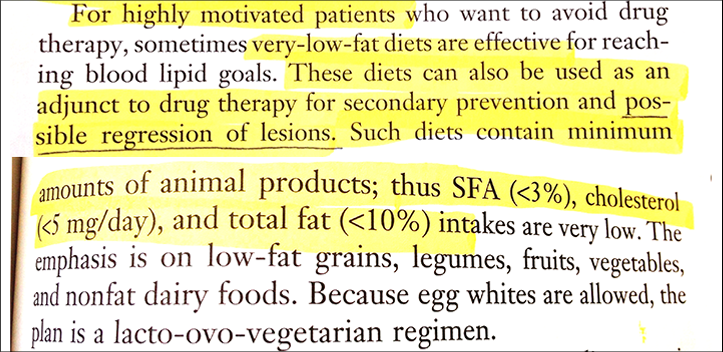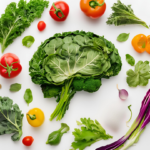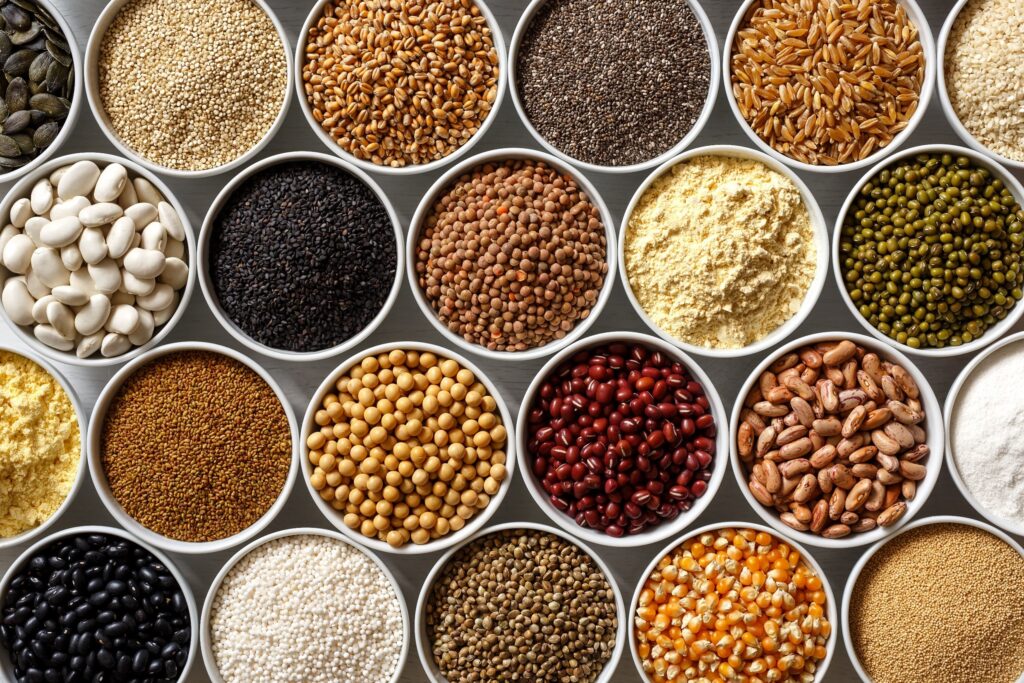
Photo credit: Marcy Kellar, CC 2.0
After a long absence, I’m delighted to be back! Not only was I contending with a respiratory virus that wouldn’t quit for most of March (made worse by an untimely bout of insomnia—lucky me!), but I’ve been utterly immersed in one of my classes, Medical Nutrition Therapy (MNT).
In MNT, my classmates and I are learning how to manage the nutrition care of nearly every disease imaginable, from diabetes and heart disease to more “exotic” disorders like hepatic encephalopathy. (Try saying that three times fast.) I’ve learned a huge amount in a very short time, and I’m truly starting to feel like a future nutritionist. I’m also pleased to say that, while the curriculum is decidedly traditional, snippets of powerful plant-based nutrition are making their way into what we’re taught.
For example, we learned that a number of different diets, like Therapeutic Lifestyle Changes (the “TLC” diet) and Dietary Approaches to Stop Hypertension (DASH) can modestly improve cholesterol and blood pressure. Undoubtedly, these diets are a vast improvement for many Americans, and I’m not knocking them. However, buried in our textbook’s chapter on heart disease, I found a hidden gem¹ (sorry for the awful image; the paragraph was broken across pages):
In plain English, that means that unlike DASH and TLC, a very-low-fat vegetarian diet can actually help unclog people’s arteries. Ironically, though, this diet is recommended only for “highly motivated” patients.
Of course, when your options are “eat a very-low-fat vegetarian diet” or “have your chest hacked open with a power saw for bypass surgery,” I’m guessing a lot of people are surprisingly motivated—assuming they’re given this diet as an option! Unfortunately, a low-fat vegetarian diet still feels like a well-kept secret in the fight against cardiovascular disease: The diet merited only 1 paragraph in the textbook (see photo above) and 0 minutes of class time. So we’re making progress, but there’s definitely room for improvement.
Despite the fact that I’d like to see more time devoted to health-promoting whole plant foods, the class really has been educational. In fact, amidst the many facts I’ve memorized, I’ve picked up four take-home points that I think you’ll find useful—and maybe even surprising.
4 Tips for a healthier you
1. Prevention is key—even after you’re diagnosed
We all know that an ounce of prevention is worth a pound of cure, and eating a diet based on whole plant foods is a great way to take care of your body. That said, we don’t have control over everything! Stuff happens, we get a diagnosis we don’t expect, and it feels like there’s nothing we can do. Well, that’s rarely the case. Prevention isn’t just about reducing your risk of getting a disease—it’s also about preventing the disease from getting worse—and perhaps even reversing it—after receiving a diagnosis. Doctors can be your allies in helping you make the shift, but registered dietitian nutritionists have had years of schooling and hundreds of hours of supervised practice solely on optimizing nutrition, regardless of what you’re facing. So if you’re battling a health problem, I strongly suggest making an appointment with an RD. (Bonus points if they’re plant-based!)
2. Eat feel-good foods
One person’s panacea is another person’s poison. For example, those with chronic kidney disease may need to limit high-potassium foods like spinach and bananas,¹ while those exact foods are health-promoting for most other people. Likewise, whole-grain bread is a great source of B vitamins and fiber for many, but can spell big trouble for those with celiac disease or gluten sensitivity. So eat the foods that make you feel best, and pay attention if you’ve been prescribed a specialized diet.
3. Beware of food-medication interactions
This was news to me: If you take medication, in some cases, the food you eat can change how it works. Depending on the drug, food might amplify or decrease its effect, or even block your body from safely eliminating it. Alternatively, some drugs can change the way your body absorbs and uses nutrients. So if you take medications, check with your healthcare provider, pharmacist, or registered dietitian to determine if there are any foods you need to avoid.
4. Give thanks for your body—it does amazing things!
Getting a crash course in everything that can go wrong in the body has given me a whole new respect for what goes right, all day, every day. (It’s also given me a minor case of hypochondria, but that’s another story!) With little effort, we take in food and turn it into, well, us. We retain just the right amount of water. We store up nutrients for later use, and we detoxify and eliminate substances that can hurt us. From our kidneys to our heart, each moment our organs carry out everyday miracles that make life possible. It’s easy to take them for granted, but every eye-blink, every heartbeat, every tummy rumble is a blessing. Even if your body isn’t 100% well right now, try to give thanks for everything that is going right. Your body deserves it.
Coming up on Veggie Quest
On a more practical note, I’m back to posting on a more regular basis. So keep an eye out for some delicious recipes in the coming weeks! I’ll also be sharing some fascinating new research, including one study suggesting that we might just need to change the rhyme about beans, beans, being good for the heart…stay tuned!
References



 I'm Lee, an RD thriving on a healthy plant based diet.
I'm Lee, an RD thriving on a healthy plant based diet.
Love this post and especially #4. Leave it to you to find all of the positives in this crazy semester of MNT! You inspire me 🙂
Thanks Amy! As an A&P prof, I know you have a special appreciation for all the amazing things our bodies do every day. Little miracles every moment!
I love number 4. It is so easy to forget how amazing it is to turn food into your body and mind. And it is so easy to not recognize how good you’re body felt yesterday until it hurts today.
For sure! Although these sound uncannily like the reflections of a man who did a really hard workout yesterday… 😉
Bravo! A great article…feeling blessed to have made the change to a low-fat-plant-based lifestyle! At 45 pounds down for the past two years (YAY, plant-based living!), reading this makes me more determined to stay the course and lose more. The real goal is good health and a happy, active life well into old age…really terrific that eating terrific, delicious foods is the base for making it happen. Thanks for the great article…looking forward to a new recipe!
Thanks Mom! To all my readers, as you can see, my mom is an inspiration! (And a really great cook; check out her loaded veggie chili and pineapple smashed sweet potatoes.)
Thanks for the great advice….Lee
You bet, Julia! Looking forward to seeing you on Veggie Quest again soon. 🙂